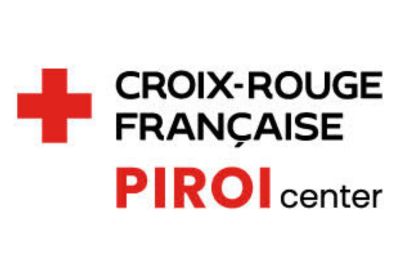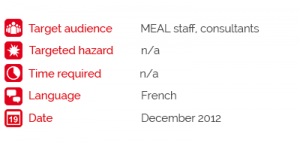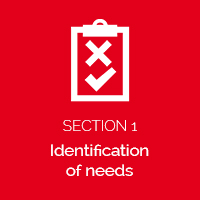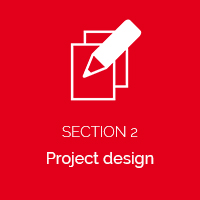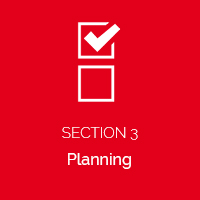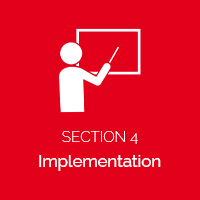
The monitoring and evaluation process is essential for accountability to the target audiences, but also for iterative learning for the organisation. Given the difficulty of measuring the impact of awareness-raising projects, different proxies should be used, such as (i) the recurrence of initiatives, (ii) the population’s perception of and sensitivity to the risks, and (iii) the knowledge and skills of volunteers and target audiences.
See the corresponding tools
 TOOL 1 – Questionnaire of Satisfaction – Evaluation of the COVID-19 Training
TOOL 1 – Questionnaire of Satisfaction – Evaluation of the COVID-19 Training
(PIROI, Reunion Island)
Objective: To obtain feedback on the quality of an awareness-raising intervention on COVID-19, and its usefulness for the public.
|
Description: Quick satisfaction questionnaire designed as a digital tool. Questions about the quality of the intervention, duration, etc. and space to leave recommendations. Added value of the tool: Fast, clear, all the essentials are there Point of caution: Online questionnaire therefore difficult to access for the general public at outdoor events open to all |
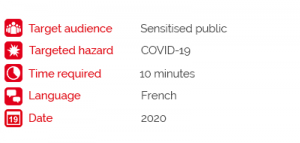 |
 TOOL 2 – Questionnaire Template – Knowledge, Attitude and Practice Surveys in Child Protection
TOOL 2 – Questionnaire Template – Knowledge, Attitude and Practice Surveys in Child Protection
(Save the Children, International)
Objective: To improve the quality of data collection, support staff and consultants in conducting KAP surveys.
|
Description: This document is an extract from a methodological guide developed by Save the Children to support project managers in collecting qualitative data for monitoring and evaluation of projects. This type of survey is done twice. At the beginning of the project, to analyse the understanding of the risks, and at the end to monitor the evolution of attitudes/knowledge. Added value of the tool : Clear and easily adaptable tool. |
Point of caution: Aimed primarily at Save the Children staff in child protection programmes. Read this toolkit in conjunction with the full CAP survey guide |
To go further…
|
 TOOL 3 – Follow-up of the initiatives: Awareness-raising report
TOOL 3 – Follow-up of the initiatives: Awareness-raising report
(PIROI, Reunion Island)
Objective: To report on actions carried out in schools. To list the schools and the number of pupils reached.
|
Description: Qualitative and quantitative data on awareness-raising activities in schools in Reunion Island in 2018-2019. Added value of the tool: Short, easy-to-read report with all important information Point of caution: The format and content is very unregimented and must be adapted to your action and your communication needs |
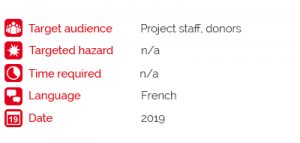 |
 TOOL 4 – Activities Report, Dood Rodrigues Caravane
TOOL 4 – Activities Report, Dood Rodrigues Caravane
(The Mauritius Red Cross)
Objective: To report on an awareness-raising action by including photos and key information.
|
Description: The activity report presents the awareness-raising activity in question, the resources deployed, the preparation of the activities, the results achieved, the successes and difficulties encountered. Added value of the tool : Comprehensive activity report with key information and lessons learned – recommendations section. Well illustrated Point of caution: The format and content is very unregimented and must be adapted to your action and your communication needs |
 |
 TOOL 5 – Pre- and post-intervention school awareness questionnaire
TOOL 5 – Pre- and post-intervention school awareness questionnaire
(PIROI, Reunion Island)
Objective: To quickly measure the impact of awareness-raising activities on a class.
|
Description: The knowledge assessment consists of two questionnaires of 10 questions each. One to be done before the intervention and the other at the end of the intervention. Added value of the tool: Very quick, gives an initial idea of the impact of an awareness-raising event in schools. The 2 questionnaires are in the same document, which makes it easier to use Point of caution: Cannot be the only impact measure, results must be triangulated with other surveys. |
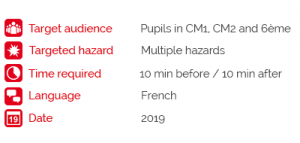 |
 TOOL 6 – Post-intervention public awareness questionnaire (PIROI, Reunion Island)
TOOL 6 – Post-intervention public awareness questionnaire (PIROI, Reunion Island)
Objective: To quickly estimate the impact of a Dengue awareness campaign.
|
Description: The knowledge assessment questionnaire consists of about 20 multiple choice questions on knowledge and application. Added value of the tool: Only multiple choice questions, so very simple and quick. Point of caution: Cannot be the only impact measure, results must be triangulated with other surveys. |
 |
 TOOL 7 – Pre- and post-intervention questionnaire on COVID-19
TOOL 7 – Pre- and post-intervention questionnaire on COVID-19
(PIROI, Reunion Island)
Objective: To rapidly assess the impact of an awareness-raising action on COVID-19 barriers’ gestures.
|
Description: Knowledge assessment questionnaires to be distributed pre- and post-intervention to assess the improvement of knowledge. 5 questions, including definitions and multiple choice. Added value of the tool Pre- and post-intervention are similar, greater reliability of data collected Point of caution: Somewhat difficult questions for a young audience |
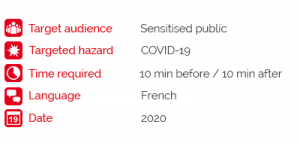 |
